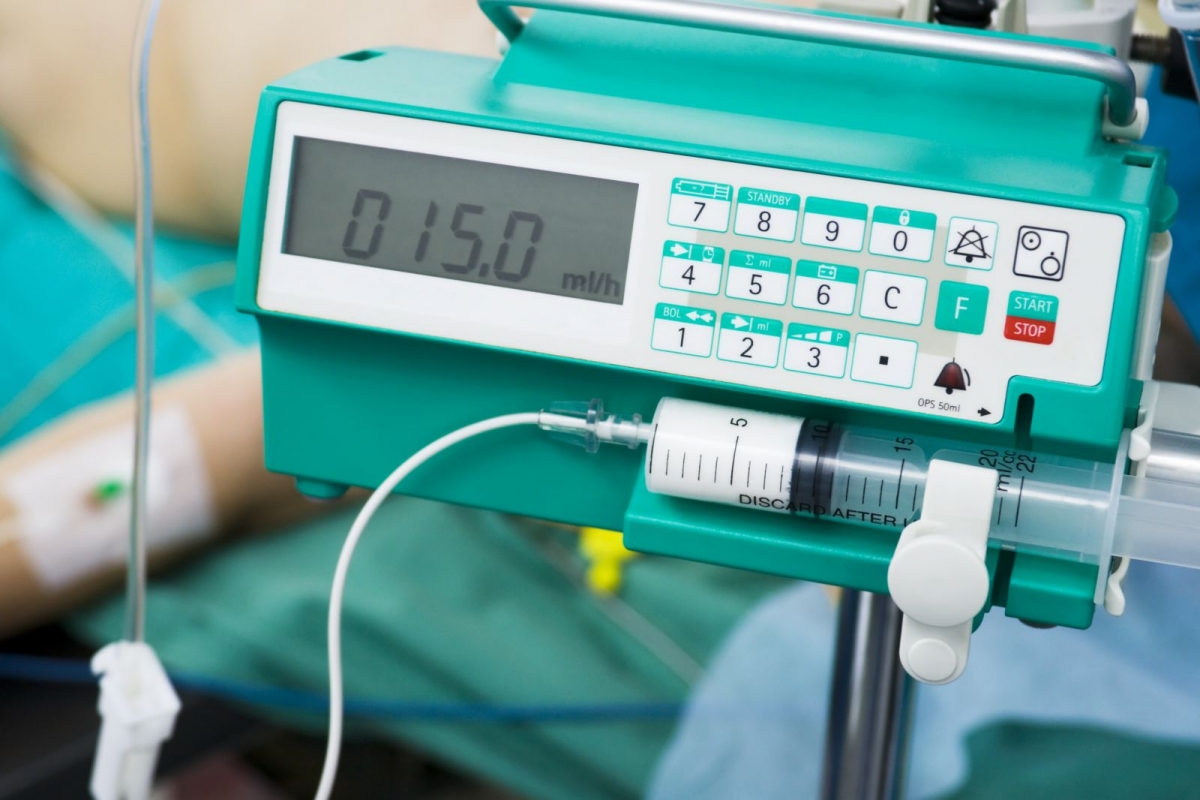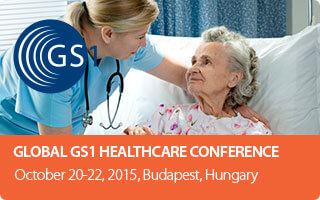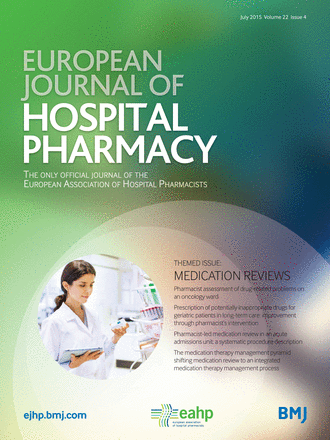 The EAHP EU Monitor is a regular round up of news relevant to hospital pharmacy in Europe.
The EAHP EU Monitor is a regular round up of news relevant to hospital pharmacy in Europe.
You can subscribe to receive the EAHP EU Monitor by email here.
 BRIEFING: ECJ judgment on pharmacy production and delivery of medicines
BRIEFING: ECJ judgment on pharmacy production and delivery of medicines
The European Court of Justice (ECJ) has made an important judgment on how exceptions within EU law that permit the production of medicinal products within a pharmacy should be applied.
The ECJ judgment of 16 July 2015 follows a request for interpretation from the Swedish Advocate General (see background below).
There are a number of key points in the judgment of relevance to hospital pharmacy. The legal requirements around pharmacy production of medicines, as set out in Article 3 of Directive 2001/83, were reiterated and given emphasis in the ECJ determination.
In particular, the judgment makes clear that:
- in order to benefit from the exception provided for in Article 3, point 1, of Directive 2001/83 (magisterial formula) a medicinal product produced in a pharmacy must “of necessity be prepared after the prescription for a specified patient has been issued”;
- the implementation of Article 3 point 2 exemptions (officinal formula), require the preparation of the medicine takes place:
- a) in a pharmacy,
- b) ‘in accordance with the prescriptions of a pharmacopoeia’ and
- c) be ‘intended to be supplied directly to the patients served by the pharmacy in question’.
Determination of whether Swedish production of Noradrenalin APL and Metadon APL was in breach of these rules of exception is now referred back to the Swedish Advocate General.
Whilst, the ECJ judgment could pose questions for hospital pharmacy practice in some countries in relation to production of medicines in the hospital pharmacy and centralised centres, it should be borne in mind that the background to the case stemmed largely from the production and delivery of a medicinal product that was also commercially available, a practice not common in most member states. See final section below.
Background to the case
The case originated in Sweden where, until July 2009, the pharmacy market was characterized by a legal monopoly: only the State-owned Apoteket AB had the right to sell pharmaceutical products to the general public. Through its subsidiary, Apoteket Farmaci, it also operated all hospital pharmacies and another subsidiary, APL, dealt with production of medicines.
Abcur AB entered the Swedish market in 2009 with a noradrenaline product for the treatment of acute low blood pressure in emergency and intensive care situations and with a narcotic pharmaceutical preparation for the treatment of opiate addicts to be prescribed only by specially authorised doctors. Before 2009, Apoteket produced and sold similar preparations in Sweden.
Abcur brought legal proceedings against Apoteket before the Swedish courts claiming that Apoteket had breached the law by manufacturing and advertising medicinal products without prior authorisation.
The Swedish judge decided to stay the proceedings and to ask the ECJ for a ruling on the scope of the exemption in EU law permitting pharmacy production of medicines without trade and manufacturer application, as well as the application of EU rules on advertising of medicinal products. Advocate General Opinion here.
The pharmacy exemption in Article 3 of the ‘Community Code’ on medicines (Directive 2001/83/EC) provides that the Human Medicines Directive does not apply to products prepared in a pharmacy in accordance with a) a medical prescription for an individual patient (“magistral formula”) or b) with the prescription of a pharmacopoeia with a view of being supplied directly to the patients served by the pharmacy in question (“officinal formula”).
The relevant sections of Article 3 of Directive 2001/83 are worded as follows:
‘This Directive shall not apply to:
- Any medicinal product prepared in a pharmacy in accordance with a medical prescription for an individual patient (commonly known as the “magistral formula”).
- Any medicinal product which is prepared in a pharmacy in accordance with the prescriptions of a pharmacopoeia and is intended to be supplied directly to the patients served by the pharmacy in question (commonly known as the “officinal formula”).
A previous opinion by the Swedish advocate general (March 2015) indicated that while the Apoteket Farmaci subsidiary APL could be considered a pharmacy under Directive 2001/83, it was questionable if other conditions set out in the Article 3 exemption for medicines production were being met. Firstly, APL prepared the medicinal products for delivery to hospitals before individual patients were identified and thus without prior medical prescription, as required within the terms of the Article 3 exemption (i.e. therefore not a magistral formula). Secondly, the advocate general considered that the Article 3 exemption for officinal formula requires the product be prepared and supplied to patients at the premises of the same pharmacy. The advocate general pointed out that APL’s preparations of narcotics product had been taking place at separate facilities from where it was being dispensed.
The Swedish Advocate General then applied to the European Court of Justice (ECJ) for further advice on the matter, the background to the July 2015 ECJ ruling (above).
Further information available via Ashurst’s EU life sciences and regulatory newsletter, April 2015.
What does this mean for hospital pharmacy practice in Europe?
Legal interpretation by Governments and professional associations of what the July 2015 ECJ ruling on pharmacy production of medicines will mean for pharmacy practice is currently ongoing. Furthermore, the ECJ ruling now returns to the Swedish court for final determination in respect of the ongoing Abcur V Apoteket court case. However, certain points might be noted in the interim period, including:
- Article 3 exceptions within Directive 2001/83 permitting pharmacy production of medicine (both magistral and officinal) remain in place
- However, the conditions under which these exceptions operate now has further ECJ case law, with emphasis placed on the pre-conditions of magistral and officinal production:
- magistral production needs to take place after a prescription for a specified patient has been issued, not before; and
- officinal production must take place in a pharmacy, and the produced medicine should be intended to be supplied directly to the patients served by the pharmacy in question.
In summary, hospital pharmacies may continue to produce medicines under the magistral and officinal exceptions offered by Article 3 of Directive 2001/83. However, the conditions under which that production may take place have now been given ECJ interpretation.
It should also be remembered that in many countries centralized production of medicines for hospital pharmacies takes place under manufacturer licensed conditions and therefore need not make use of the Article 3 exception clauses in any case.
Whilst awaiting further developments in respect of this case, EAHP’s initial response to the judgment includes some concern that the ECJ ruling could yet be interpreted at national levels in a manner that unduly impedes patient care. The practice of a centralized production in and for pharmacies is common practice in many countries as an efficient and practical means of meeting specific patient need. Health systems should therefore be encouraged to reflect carefully on how best to ensure existing pharmacy production practices can be assured as being in compliance with Directive 2001/83 rather than adopting rushed responses that might impede patient care.
EAHP’s EU Monitor will report further on the emerging implications of this case judgment, and responses to it.
ECJ Court Judgment here (July 2015)
Swedish Advocate General Opinion here (March 2015)
EAHP would like to thank Practical Pharmaceutics and members of Nederlandse Vereniging van Ziekenhuisapothekers (NVZA) for their input to this briefing.
……………………………………………………………………………………………………………………………………………………………………
 BRIEFING: EU Governments make progress in agreeing future regime of EU medical device regulation
BRIEFING: EU Governments make progress in agreeing future regime of EU medical device regulation
EU Governments are closer to agreeing a common position on the EU’s system of regulation for medical devices should be modernized following the most recent meeting of the Employment, Social Policy, Health and Consumer Affairs Council (EPSCO).
While the European Commission made its initial proposals for reforms 3 years ago, and the European Parliament gave its opinion 2 years ago, the process of modernising EU medical device regulation has been held back by disagreement on some issues between the EU’s 28 Member State Governments.
According to reports however, progress has now been made on an agreed position, with proposals from Governments (called ‘the Council’ in EU-terminology) including:
- An extension of the scope of EU regulation of medical devices to include groups of products which are not intended to have a medical purpose. These products would be listed in Annex XV of the Regulation and include contact lenses or other articles intended to be introduced into or onto the eye. Equipment intended to be used to reduce, remove or destroy adipose tissue such as equipment of liposuction, lipolysis or lipoplasty would also be included in this Annex.
- Agreement that the current conformity assessment procedures for high risk medical devices be strengthened. However, the position of the Council differs from that of the European Parliament in so far as national Governments are seeking less categories of medical device be included within the strengthened procedures. The Council took the view that the procedure should apply only to implantable Class III medical device and Class D IVDs.
The emerging Council agreement on strengthening assessment of high risk devices
The reported agreement in the Council as to the operation of the strengthened assessment procedure for high risk devices includes:
- The manufacturer’s notified body would prepare a clinical evaluation assessment report concerning the clinical evidence provided by the manufacturer taking into account the benefit/risk determination, the consistency with the intended purpose and the post-market clinical follow up plan;
- This clinical evaluation assessment report must then be transmitted to the European Commission which would communicate the report to an expert panel;
- The expert panel would provide a scientific opinion concerning the clinical report to the notified body; and
- The notified body would give due consideration to the views expressed by the expert panel. If necessary, the notified body may advise the manufacturer to restrict the purpose of the device to certain numbers or groups of patients, to limit the duration of validity of the certificate, to undertake specific post market clinical follow-up studies, to adapt the instructions for use or the summary of safety and clinical performance or impose other restrictions in its conformity assessment report.
A compromise position on reuse of single use devices
Beyond the reform of assessment procedures for high-risk devices, another area of contention between EU Member State governments has been the matter of reprocessing of single use devices. Reports now suggest that a compromise agreement has been reached between governments on this topic, which will permit reuse of single use devices if permitted by the EU Member State concerned.
As with the Parliament’s proposal, the Council also considered that any natural or legal person who wishes to reprocess a single-use device in order to make it suitable for further use, must be considered as the manufacturer of the reprocessed device and be held liable for its reprocessing activities. The Council, however, introduced an exception to this principle for single use devices reprocessed and used within a health institution.
Autumn 2015 Trilogue negotiations
While there is still some final work to be conducted on completing the Council agreement, it now appears reasonably safe to assume that the trilogue negotiation on the final wording of the new EU medical devices regulatory framework will commence in the Autumn with final passage of the legislation possible in early 2016. Trilogue negotiation is the process by which EU Governments, the European Commission and European Parliament reach final accommodation and agreement on the definitive wording of a new piece of legislation.
Further information is available via this Lexicology article, from which this briefing draws from.
To see also the press release from the European Council, which links to the Council’s proposed text changes to the 2012 European Commission proposal.
…………………………………………………………………………………………………………………………………………………………………..
 GS1 healthcare conference: Preliminary agenda announced
GS1 healthcare conference: Preliminary agenda announced
GS1, the international standards organisation, has released preliminary details of its healthcare conference in Budapest (20-22 October 2015). The conference is free for hospital pharmacists to attend.
The conference will have a focus on the use of GS1 standards to improve patient safety in healthcare with several morning and afternoon sessions dedicated to hospital implementation matters, including the sharing of implementation case studies and discussion on achieving point of care scanning.
Case studies at GS1 healthcare conferences typically draw from across Europe and beyond, with speakers at the 2015 conference set to include practitioners from Germany, the Netherlands, France, Ireland, the UK, Hong Kong, Canada, Japan, the USA and Australia.
The second day of the conference (21 October) will give a particular focus to matters connected to the 2011 Falsified Medicines Directive and in particular, challenges related to the implementation of that Directive’s requirements in respect of medicines verification (to be in place by 2018).
More information here: http://www.gs1.org/budapest2015
……………………………………………………………………………………………………………………………………………………………………
 EJHP: The case for case reports
EJHP: The case for case reports
Phil Wiffen, Editor-in-Chief of the European Journal of Hospital Pharmacy (EJHP) published a new article on the EJHP online first edition encouraging hospital pharmacists to submit case reports to the Journal. This can be done via a new easy-to-use template, available on the EJHP website.
More information here.
























 The EAHP EU Monitor is a regular round up of news relevant to hospital pharmacy in Europe.
The EAHP EU Monitor is a regular round up of news relevant to hospital pharmacy in Europe.
 BRIEFING: EU Governments make progress in agreeing future regime of EU medical device regulation
BRIEFING: EU Governments make progress in agreeing future regime of EU medical device regulation GS1 healthcare conference: Preliminary agenda announced
GS1 healthcare conference: Preliminary agenda announced EJHP: The case for case reports
EJHP: The case for case reports 